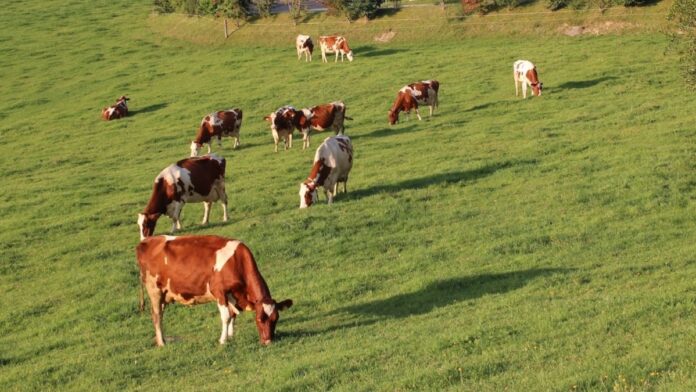Cathy Buckle
Heading north-east on the highway a few days after the easing of the latest COVID-19 lockdown it was a joy to be able to see our beautiful Zimbabwe again. How I had missed her!
Ahead of me a huge 30-tonnne rig had stopped and the driver was buying a bowl of tomatoes from a little girl who wasn’t even as tall as the tyres; the smile on her face at the sale of her tomatoes spoke a thousand words and made me smile too.
All around the grey skies were low and ominous, more rain was coming, and the tops of the kopjes and mountains were shrouded in white rain clouds. All along the road the rivers were full, up to their banks, lapping against tall grass, bulrushes and sedges.
A single vervet monkey scampered across the road, stopping on the verge to pick up a morsel before disappearing into the tall flowering grass. Fat-bellied cows were grazing in the lush grass and big pools of water lay in the dips and valleys, the ground everywhere saturated.
How can it be, I keep asking myself, that 21 years after I started I am still writing about land invasions and evictions? How long can this insecurity continue to ravage our Zimbabwe we all ask as the years tick past, the food imports continue and more and more people lose their livelihoods.
“Henceforth no more land invasions in whatever form, place, or by whomsoever! Be warned!” These were the words of President Emmerson Mnangagwa’s spokesman George Charamba on Twitter on February 16.
As we have many times before, we didn’t hold our breath and waited to see if these were just platitudes again intended to charm ‘The West’.
They came into force simultaneously on February 26, showing that the government was going ahead with plans for lucerne farming by Dendairy in a substantial area of communal land in Chiredzi . SI 50 of 2021 will see 12 538 Shangaan families from Chiredzi South and East being forcibly removed from their ancestral lands to make way for white-owned commercial farmers Dendairy.
Former Harare East MP Tendai Biti (MDC Alliance) asked local government deputy minister Marian Chombo to explain why the Shangaan villagers’ ancestral land was being offered to white farmers at the expense of minority groups.
She responded by saying: “Right now, we are in the drive to boost our agriculture, and so if we realise that some of the land being occupied as residential areas is suitable for agriculture, we introduce those statutory instruments to make sure that we do justice.”
‘National interest’
Questioning the government’s policy that was being used to take communal land, Justice Minister Ziyambi Ziyambi said the project was of national interest: “Communal land is vested in the President, and even if you have land with title deeds, when there is a project of national interest, the President can cause it to be gazetted, and you will be relocated.”
“National interest?” we asked, while activists started a vigorous social media campaign #BoycottDendairy to highlight the injustice.
So it was clear that the Be Warned statement did not apply to the Zanu-PF government evicting black Shangaan villagers to make way for white commercial farmer Darren Coetzee who Mnangagwa said he had “worked very well with”.
Meanwhile a report had been published in The Zimbabwe Independent about the land grab of Oscro Farm in Chiredzi by a named Zanu PF provincial official and a Chiredzi medical doctor.
Government official and five ‘machete-wielding people’
Protected by a Bilateral Investment Promotion and Protection Agreement (Bippa) between Zimbabwe and Italy, the 5 000 hectare ranch purchased by Tony Sarpo in 1987 has 120 hectares planted to sugar cane and a herd of 200 Braham cattle.
A local newspaper reported that in late January the provincial government official arrived at 7pm on a Friday night in two vehicles with five “machete-wielding people” who informed the farm manager they had been hired to forcibly remove him.
Any of us who have been the victims of land invasions in the last 21 years had chills down our spines when we heard this, knowing only too well that there was nothing at all coincidental about the timing of the incident coming on a Friday night – when all the courts are closed for the weekend and legal relief is all but impossible.
Was it also coincidental that a few days after the Zimbabwe Independent exposed the names of the Zanu PF ‘functionaries’ involved in the Oscro farm invasion by men with machetes, the Be Warned statement was issued by Zanu-PF presidential spokesman? The irony wasn’t lost on us.
US sanctions
Coincidental or not, on March 3, North America announced the renewal of targeted sanctions on around 140 entities and individuals in Zimbabwe. US President Joe Biden said the “actions and policies of certain members of the government of Zimbabwe and other persons to undermine Zimbabwe’s democratic processes or institutions continue to pose an unusual and extraordinary threat to the foreign policy of the United States”.
At the end of it all, the sad reality in Zimbabwe in 2021 is that if you are a Shangaan villager living on ancestral lands and the government gives your land to a white dairy farmer, you are in the same boat as the white commercial farmer on land protected by a Bippa being invaded by government functionaries who want your land.
The tragedy however, is for all the rest of us ordinary people in Zimbabwe.
We are now in the third decade of land grabs and evictions, and while the invaders scrabble for someone else’s livelihood, legacy and history, the huge trucks plying our highways have to keep on coming in from South Africa in order to keep food in our bellies in the country once known as the Breadbasket of Africa. – Moneyweb
Cathy Buckle is a Zimbabwean writer and blogger living in Marondera, Zimbabwe.








